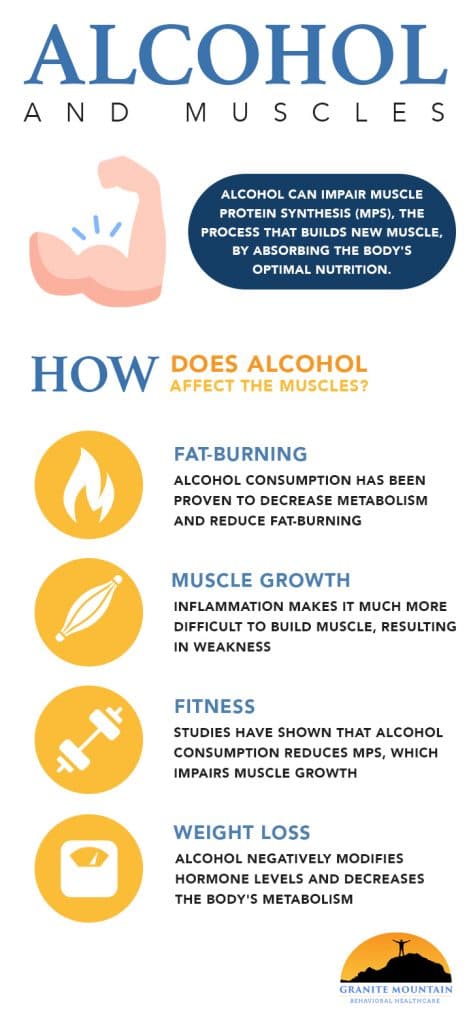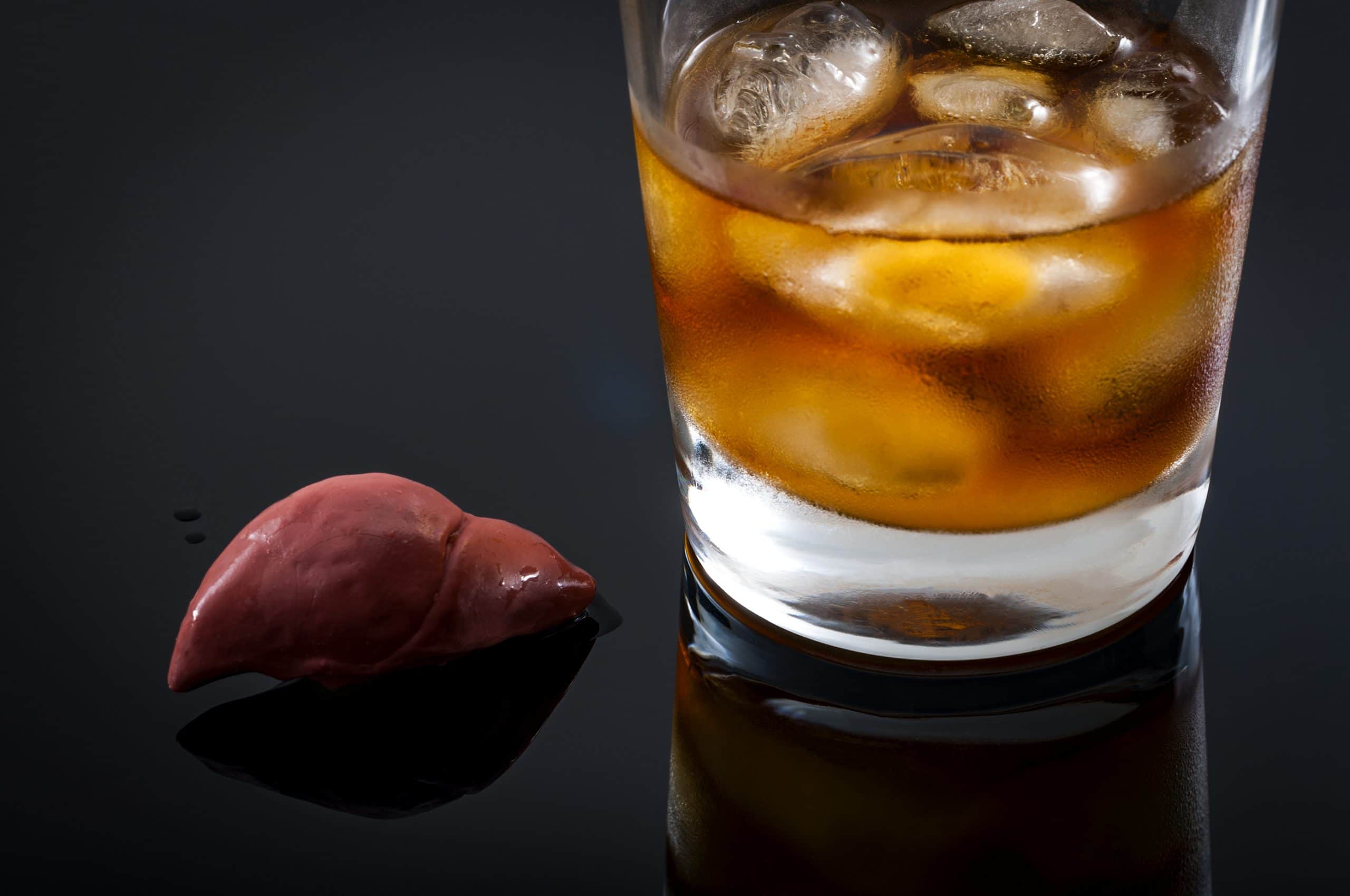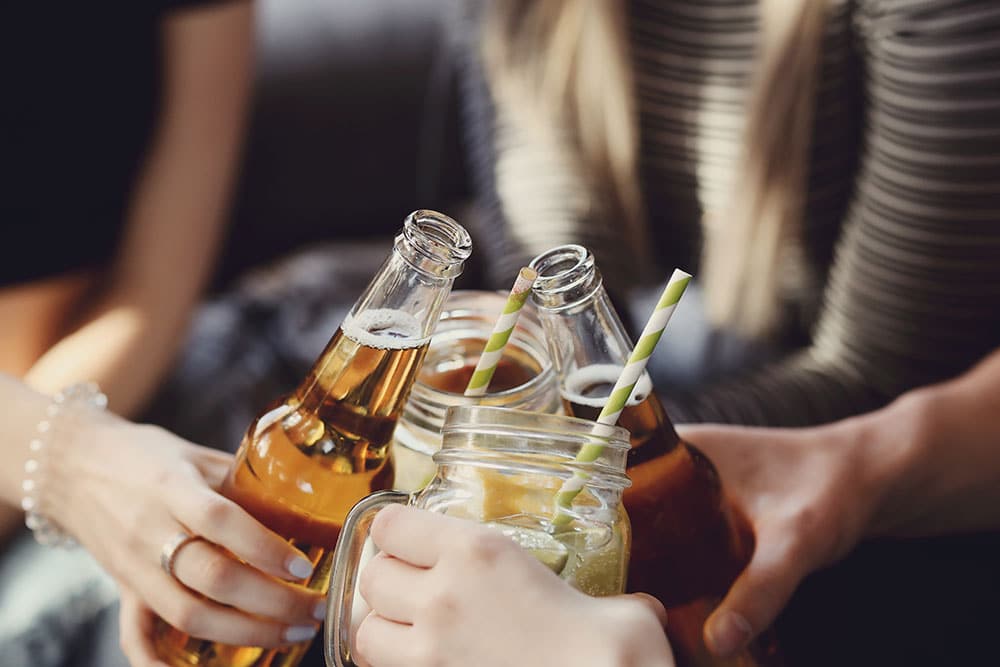If you or your loved one consume large amounts of alcohol regularly you may notice signs of memory loss. The support you or your loved one needs to overcome this addiction to alcohol is available at Granite Mountain Behavioral Healthcare. Our team of dedicated, caring and trained professionals are prepared to support you in every phase of recovery.
The area of the brain that is damaged from alcohol-related dementia is the hippocampus. This part of your brain helps form new memories and store old memories. Both short and long-term memory loss can occur with alcohol-related dementia.
Alcohol-related dementia is a serious disease. If steps are taken to treat the addiction to alcohol it is possible to reverse the damage. This process that leads to sobriety requires determination and patience.
What Is Wernicke-Korsakoff Syndrome?
The two terms for Wernicke-Korsakoff syndrome come from
- Wernicke’s encephalopathy – a degenerative brain disorder of alcoholics that is due to a lack of vitamin B-1. The disorder affects the thalamus and hypothalamus sections of the brain.
- Korsakoff syndrome – a memory disorder that stems from a lack of vitamin B-1 and the effects of alcoholism. This syndrome affects nerve cells in the brain and spinal cord and the section of the brain that controls memory.
The common terms for Wernicke-Korsakoff syndrome are wet brain disease or alcohol-related dementia. This syndrome occurs in alcoholics. It is caused by two conditions in the brain that create a deficiency in vitamin B-1.
The deficiency in vitamin B-1 can occur in someone who is addicted to alcohol because of bad dietary habits. A good supply of vitamin B-1 is necessary because it is what turns food into energy. The alcohol in your system also prevents the storage and absorption of vitamin B-1.
How Does Drinking Affect the Brain?
The brain is affected by alcohol in many different ways. Drinking a glass of wine with dinner or having drinks with friends on the weekends does not have a lasting impact on your brain. The problems arise from those who are not able to control their intake of alcohol and creates a pattern of alcohol abuse.
Alcoholics suffer from many health-related issues. Your brain is severely affected in many ways. Both the processing of information as well as the way information travels within your brain cells is altered. Oxford University Press estimated that between 10 and 24 percent of brain damage and dementia cases may be related to alcohol abuse.
The stages that your body goes through when influenced by alcohol include:
- Subliminal intoxication – Reaction time, behavior, and judgment are affected after one drink.
- Euphoria – Dopamine – the chemical that creates pleasure – is released by your brain. You may feel relaxed during this stage, and reasoning and memory are somewhat lessened.
- Excitement – Stage at which you are legally intoxicated. The brain’s occipital lobe, temporal lobe, and frontal lobe are affected. Blurred vision, slurred speech, and an overall lack of control are evident. Fine motor skills and reaction times slow down a great deal.
- Confusion – Walking and standing are compromised due to the effect on your cerebellum. This is the stage where blackouts may take place and that creates short-term memory issues. The hippocampus is the area of the brain that is being affected.
- Stupor – This stage sees a blood alcohol count of 0.25 and signs of alcohol poisoning are occurring. All functions of your body are impaired at this point and the possibility of someone passing out, getting injured, or even suffocating is high.
- Coma – Your blood alcohol count is 0.35 and the risk of going into a coma is very real. Breathing, circulation, motor control, and responses are poor. Death is very possible at this stage
- Death – A blood alcohol count of 0.45 can cause death. Your brain may not be able to control its vital functions at this stage.
Warning Signs of Alcohol-Related Dementia
The signs of alcohol-related dementia can vary from person to person. Brain structure and the length of time that excessive amounts of alcohol have been consumed can determine the severity of alcohol-related dementia. Warning signs of alcohol-related dementia include:
- Short-term memory problems
- Bad decision choices
- Difficulty in solving complex problems
- Personality changes that cannot be explained
- Trouble with following directions
- Finding the motivation to complete simple chores or tasks
- Struggling to hold a conversation without struggling to “find the words”
- Having a hard time staying focused
Does Alcohol Abuse Cause A Decline In Cognitive Activity?
Cognitive activity is defined as “mental activity.” The cognitive activity of someone who is addicted to alcohol can be altered in many ways. The length of time that someone has been addicted to alcohol and the quantity of alcohol consumed will determine the amount of damage to a person’s cognitive activity.
A severe consequence of alcoholism is known as “alcoholic Korsakoff’s syndrome.” The signs of this syndrome indicate that a person is only able to remember new information for a few seconds, not able to solve problems, and not able to process their thoughts.
Other indications that alcohol is affecting your cognitive activity are:
- A decrease in the amount of time it takes to process information
- The ability to learn new things becomes difficult
- An inability to deal with objects in a two-dimensional or three-dimensional space
The damage to the brain that occurs because of alcohol abuse can be caused by
- Head injuries that may occur while you are intoxicated and unable to control your body’s motor function
- Overall toxicity of alcohol on your brain cells
- The biological stress of repeated intoxication and withdrawal
- Diseases from alcohol-related damage to the brain and the brain’s blood supply
Can Drinking Be Linked to Short-Term or Long-Term Memory Loss?
In 2018 a study found that heavy drinking increased the risk of dementia by about three times. The effects of drinking alcohol can create both long and short-term memory problems. Long-term memory is “retrospective” memory, and short-term memory is “prospective” memory.
Short-term memory loss is more prominent in alcoholics. Heavy use of alcohol causes the brain to have trouble transferring short-term memory items into long-term memories. Blackouts can occur when large amounts of alcohol are consumed. These blackouts have an effect on your short-term memory.
Long-term memory problems also occur to those who are addicted to alcohol. You may see changes to the body such as
- Damage to nerves
- Permanent brain damage
- Reduced grey matter in the brain
- Stroke
It has been discovered that the overall intelligence of someone who is addicted to alcohol is not affected by prolonged alcohol abuse. The memories that were stored in your brain before heavy alcohol use remain intact. Because of this, you are able to maintain your intelligence level even though you may be drinking excessively.
“Wet Brain” Disease Defined and Symptoms
 “Wet brain” disease is a type of brain damage and is another way to describe Wernicke-Korsakoff syndrome. Wet brain can occur due to alcohol abuse. It is brought on due to a lack of an important vitamin needed in the body – thiamine, also known as vitamin B-1.
“Wet brain” disease is a type of brain damage and is another way to describe Wernicke-Korsakoff syndrome. Wet brain can occur due to alcohol abuse. It is brought on due to a lack of an important vitamin needed in the body – thiamine, also known as vitamin B-1.
Eating a balanced diet can supply the average person with enough vitamin B-1. Foods such as beef, pork, whole grains, and many vegetables provide the necessary, healthy amount. If you or a loved one is abusing alcohol they may have no concern with nourishing their body, much less making healthy food choices. This lack of nourishment is what can create a deficit in vitamin B-1.
When your body lacks vitamin B-1 neither the heart nor the brain is able to function well. One organ that is affected is the liver. Your liver stores any extra supply of vitamin B-1. Alcohol abuse will drain any of that extra supply of vitamin B-1.
There are enzymes and neurotransmitters in your brain that need vitamin B-1. When there is a lack of this vitamin, brain damage develops. This brain damage is referred to as wet brain. You are at risk of developing wet brain dementia when your intake of alcohol and the length of time heavy alcohol consumption occurs increase.
What Is the Treatment for Wet Brain?
Medical assistance is necessary for treating wet brain disease. Treatment requires medical assistance in order to increase the amount of vitamin B-1 in your body. If intervention happens quickly, there is a chance that some of the symptoms of wet brain disease can be reversed. If you do not seek treatment then the damage that occurs due to the lack of vitamin B-1 can be permanent.
Treatment options can include:
- Injecting vitamin B-1 into the body
- Detoxification and therapy to regain your health
- Taking vitamin B-1 supplements
- Making changes in diet
Alcoholism is a very dangerous and potentially deadly disease. Fortunately, it is a disease that can be treated and reversed with the help of our medical staff at Granite Mountain Behavioral Healthcare. Help is available and we are ready to take your call.
If you or your loved one is struggling with an addiction to alcohol please make that phone call today. We are ready to provide you with the care and support necessary to regain a normal, healthy life.
Resources
https://www.nm.org/healthbeat/healthy-tips/alcohol-and-the-brain




 Consuming alcohol indicates you’re drinking empty calories that have zero of the body’s nutritional value. Healthy carbohydrates will have seven calories per gram as opposed to four calories per gram. Many alcoholic beverages are blended with mixers full of dyes and sugar, producing more unhealthy calories for the body.
Consuming alcohol indicates you’re drinking empty calories that have zero of the body’s nutritional value. Healthy carbohydrates will have seven calories per gram as opposed to four calories per gram. Many alcoholic beverages are blended with mixers full of dyes and sugar, producing more unhealthy calories for the body. 








